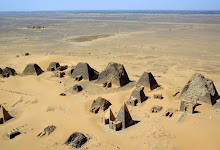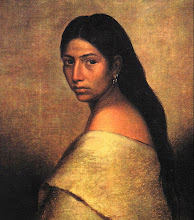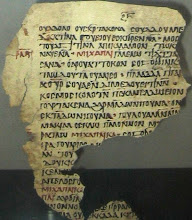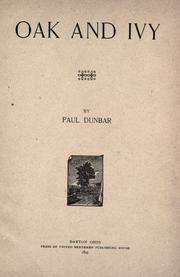The idea of Germany colonizing domains seemed remote as the government had shown no interest in expansion, and the chancellor, Otto von Bismarck, repeatedly emphasized that there would not be colonies ("So lange ich Reichkanzler bin, treiben wir keine Kolonialpolitik"). How did the chancellor have this change of heart? It could have been a diplomatic game in which the colonies were pawns as some historians view it, or it could have been traders and manufacturers who manipulated him. By 1882 Bismarck listened to the proposals of a trader called Adolf Lüderitz, and they made a deal. Bismarck would grant Lüderitz protection for land he might acquire in Africa, if he obtained a harbour and if the colonized territories were given clear titles, which meant that no other power could claim them.
By early 1883 Lüderitz set off, and in May he had bought the first harbour, and he still kept on buying land until the north of Angra Pequena (which he bought from a Nama chief called Joseph Fredericks; Angra Pequena later called Lüderitzbucht), which the British wanted to claim, or did not think the Germans were entitled to it. On the 24 April, 1884, Bismarck proclaimed Lüderitz’s right over his establishments, and that they are under the protection of the Reich.
Of all the German colonies German South-West Africa was the only one which both was a trade colony (primarily export of natural resources) and a settlement colony of large number of German immigrants. They became farmers, and it is estimated that around 1910, 13,000 Germans lived in South-West Africa compared to the total 200 Germans living there around the late 1880s and very start of 1890.
On 1 July, 1890 the Helgoland-Sansibar-Vertrag was agreed between the British and the Germans, which settled the borders between the British and German territories.
The history of the great fights of the tribes in German South-West Africa against the Germans has not received the well-deserved recognition. If one look through the spectacles of the African peoples, it is taking the greatest historical event and their humanity from them. Why was their history hardly written detailed? Maybe the war between the tribes and the Germans was seen as just an ‘incident’ rather than an actual war. However, there is a mass of written records of history in German South-West Africa because the Germans were inveterate record keepers. These were used to justify the Germans’ actions.
The divide-and-rule policy was a way colonial powers created alliances with local chiefs and by doing that the colonial powers took advantage of animosities between the local people. The Germans tried hard to make Samuel Maharero appear like the paramount chief of the Hereros, even though no such term existed in the traditional Herero culture, because Hendrik Witbooi, chief of the Nama people (also called Namaqua; derived from the Khoikhoi people) was against the Germans from the start. By allying with the Hereros, using an old hatred between Nama and Herero, the Germans got what they wanted. In 1890 Maharero reinstated the German protection treaty which had been rejected two years previously.
Hendrik Witbooi (1838-1905) had put up resistance to the Germans (and the Hereros) before they even claimed the land, and he had a dream of uniting all the Nama tribes under one leader, fighting against the Hereros. In a letter to Maharero after he had signed the protection treaty, Witbooi wrote:
“[…] But dear Captain! you have accepted another government, and submitted yourself to that government, to be protected by a human government, from all dangers, the first, and the nearest, against me, in this war, which exists from long past between us […] and you shall eternally bear remorse , for having placed your land and government into the hands of the white people.
I know Dr. Göring [Imperial Commissioner] and you, you are of different nations, and you are from time long past not good and true friends with one another, but you have concluded this friendship, solely to destroy me, just like Herod and Pilate, so that they could remove the lord Jesus, they hid and downplayed their differences…” 
Witbooi attacked Herero cattle post a month after, so Maharero appealed to their enemy’s enemy, the Germans, for help but they did not want to “get involved in native affairs”. The Germans’ protection treaty was a sham.
After many tribulations Witbooi was forced to sign a peace treaty in 1894 by Theodor Leutwein, who was made governor and military commander in German South-West Africa.
The Great Uprisings
On 12 January, 1904, the Hereros, led by Maharero, began their first attacks towards German farmers and stores. The Hereros were almost unarmed, but as Maharero said in a letter to a chief, “death has lost its terrors” because their conditions worsened, and they were ready to fight against the German injustice.
In February and March the German troops were reinforced with 1576 officers and men, weapons and horses, ready to counter-attack. “The March and April disasters” were nothing but victories for the Hereros, because Maharero was a good and smart military leader operating from a secure base. Up until April the Germans had lost 210 soldiers, and 250 Hereros were killed. The Germans licked their wounds, so the troops were out of action, and Maharero headed north to Waterberg.
The Battle of Waterberg, 11 August, 1904, was an important battle between the Germans and the Hereros, where the Herero failed resistance. The German forces under the command of Lothar von Trotha, who took over from Leutwein, made the Hereros retreat and fled into the desert where the Germans poisened the wells in the area so the Hereros died. The rest of the Hereros who were left behind on the battlefield (men, women and children) were either killed or kept as prisoners of war in workcamps. On 2 October, 1904, von Trotha promulgated that “the Hereros are no longer German subjects”, and if the Hereros moved within the German border they should be killed. Many were killed and lynched.
The Hereros were numbered to 80,000 at the time the revolt started, and in 1911 there were only 15,130 left and half of the Nama population died as well.

 1,000 escaped to the British territory but most died of thirst in the desert. These events are called “the Herero Genocide”.
1,000 escaped to the British territory but most died of thirst in the desert. These events are called “the Herero Genocide”.In September 1904 when Witbooi heard from nineteen Namas that the Germans were slaughtering the natives, rumours of a move against the Germans filled the air. October, 1904, Witbooi started an uprising (which was called “the Hottentot Revolt”, let's call it the Nama Revolt) after the death of a German official called Bezirksamtmann von Burgsdorff was killed. One-half of the remaining tribes in German South-West Africa had joined Witbooi, and the fact that they used guerrilla tactics made it very hard for the Germans to win, even though they had a force of almost 10,000 men, compared to Witbooi’s army of between 1,260-1,410 men. The far distance from the railroad prolonged the war because the Germans constantly lacked supplies.
In a fight on 29 October 1905, Witbooi died. His son, Isaak Witbooi, wanted to continue the struggle but the people were anxious to make peace. On 20 November a sub-chief of the tribes, Samuel Isaak, arranged with the Germans the conditions of surrender. They should give their weapons and ammunition to the Germans and be settled at a labour camp (which were established for other tribes as well), and only those men who killed white farmers would be punished. They agreed, and the following day the warriors rode into the camp “proud and upright, sitting on their horses with grim miens”.

While “the Hottentot Revolt” went on, Jakobus Morenga had already started small insurrections towards the Germans. Morenga and his men used guerrilla tactics as well as the Namas, and humiliated the Germans many times because the German force was much larger.
The great revolt died on 16 November 1906 when the Germans surrounded a group of Morenga’s men, and killed some of them. The rest were driven into the bush.
The German government declared German South-West Africa pacified on 31 March 1907.
Not only the Germans, but also other colonial powers, were in a catch 22 situation as regards to power. On the one hand they had unlimited chances to put violence onto their enemies (the African people whom they subjugated and whose land and resources they stole), but on the other hand no amount of weapons and violence can force their will upon another people. I think the Germans learned, to their dismay, that people would rather die as free men than live their lives in imprisonment by a foreign people. With their power they could kill but not convince.
On 9 July 1915 German South-West Africa was occupied by South Africa.








.jpg)











No comments:
Post a Comment